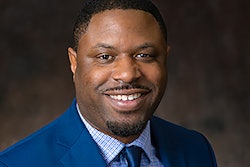A recent article written by Howard University student Aleesa Mann that appeared on the website The Root looked at the dilemmas facing Black studies programs and departments at historically Black colleges and universities. The perennial issues, such as reluctant institutional commitment, chronic lack of funding, apprehensive students and perceptions of unhinged radicalism among faculty and students involved in the discipline, are a few allegations that plague many aspects of the discipline. As a professor whose teaches African-American studies, I am aware of the routine criticisms associated with the field. They tend to be the following:
This is the inaccurate message that has been put forth either subtlety or in no uncertain terms again by right-wing cultural critics (and a few left-of-center ones) and even some critics in academia. As any sensible person knows, such a belief is nonsensical, misguided and wrong.
While such charges could apply to a few professors, the fact is that such a mindset does not represent the vast majority of Black studies scholars. In fact, many Black studies scholars are often very inclusionary in the classroom and their scholarship. In fact, one could levy similar generalizations of certain faculty personal agendas in any academic field of study ranging from the humanities to the hard sciences.
I am certain that many of us who are Black have heard someone (frequently another Black person) question the practicality of earning a degree in Black studies. I even heard this argument among some of my relatives when I was an undergraduate student. Guess what? A number of years later, they have seen the results. Elementary or secondary education, urban planning, diversity training, consulting, politics, higher education, journalism, public relations and government work are a few of the employment possibilities available to students who major in the discipline.
Many Black students assume that because they are Black, there is no need for them to waste their time in taking such courses or majoring in a field that they believe they are an expert in. They are wrong on a multitude of levels.
While one could expect (or even tolerate) a certain degree of ignorance from young, undergraduate college students or even some non-Blacks for that matter, it is much more disappointing to hear such bloviated rhetoric espoused by fellow Black academics.














